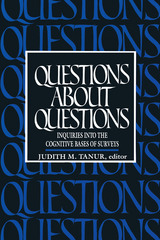
In a society which has made "urban crisis" a phrase peculiarly its own, it is strange how many different meanings are assigned to those two words. The theme of this book is that it is more important to disentangle and analyze the various problems which are indiscriminately referred to by this phrase than simply to issue a call to arms. To paraphrase the editor of The Metropolitan Enigma, James Q. Wilson, not everything about cities constitutes a problem and not all problems to be found in cities are distinctively "urban." This book seeks to explore the complexities and clear away the easy generalizations that prevent an understanding of the human problems of an urbanizing nation.
The essays in this book were written by Daniel P. Moynihan (Poverty in Cities), Bernard J. Frieden (Housing and National Urban Goals), Edward C. Banfield (Rioting Mainly for Fun and Profit), and other perceptive students of American society. Some of the papers reveal unexpected findings; others take an unusual perspective; each provides a fresh and lucid treatment of a difficult subject. No effort has been made to produce a work animated by a single point of view. A central idea of The Metropolitan Enigma is that there is no all-embracing strategy that can be put forward as an effective solution for the "urban crisis." Directed to everyone who is interested in the future of the American city, this is an important and valuable book.
The volume was first published in a soft-cover edition by the Task Force on Economic Growth and Opportunity of the United States Chamber of Commerce in 1966. The Joint Center for Urban Studies of M.I.T. and Harvard commissioned the articles. Each of the contributors has had an opportunity to revise his paper, and several essays have been substantially rewritten. Edward Banfield's essay appears here for the first time.

READERS
Browse our collection.
PUBLISHERS
See BiblioVault's publisher services.
STUDENT SERVICES
Files for college accessibility offices.
UChicago Accessibility Resources
home | accessibility | search | about | contact us
BiblioVault ® 2001 - 2024
The University of Chicago Press









